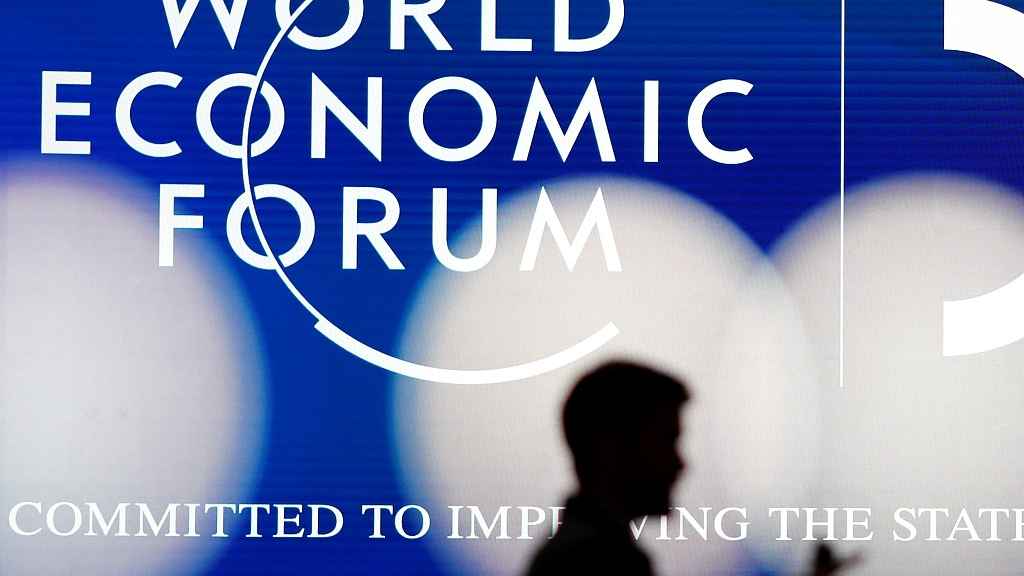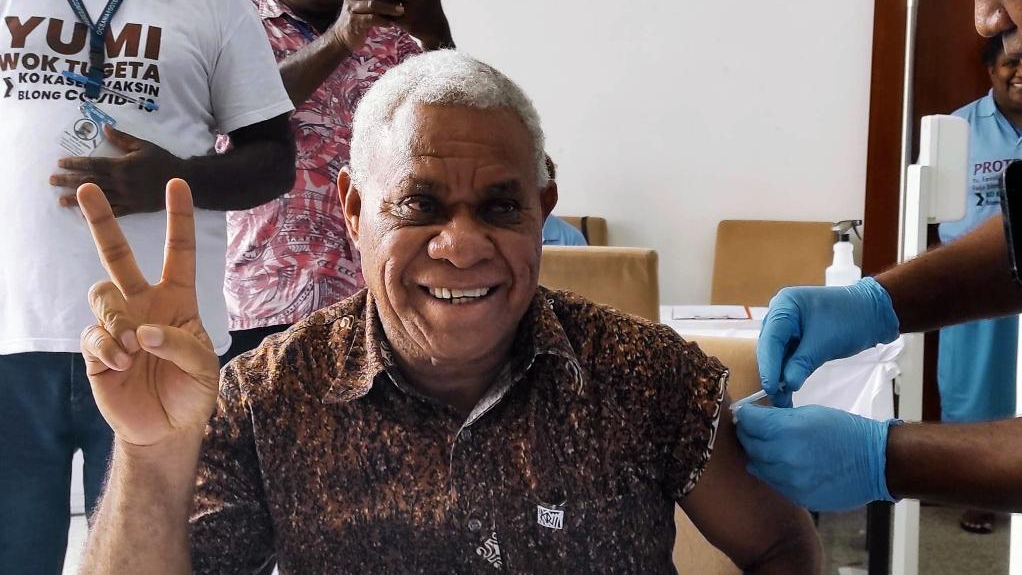
A man is silhouetted in front of the World Economic Forum logo in Davos, Switzerland, January 19, 2020. /VCG
A man is silhouetted in front of the World Economic Forum logo in Davos, Switzerland, January 19, 2020. /VCG
Editor's note: Hannan Hussain is a foreign affairs commentator and author. He is a Fulbright recipient at the University of Maryland, the U.S., and a former assistant researcher at Islamabad Policy Research Institute. The article reflects the author's opinions and not necessarily the views of CGTN.
On January 17, Chinese President Xi Jinping delivered his special address at the 2022 World Economic Forum Virtual Session, where he underlined shared interventions to create a better post-COVID-19 world.
"Countries need to strengthen international cooperation against COVID-19, carry out active cooperation on research and development of medicines, jointly build multiple lines of defense against the coronavirus and speed up efforts to build a global community of health for all," said Xi.
What stands out is a multipronged approach to advancing openness in economic globalization, strengthening macro policy coordination, bridging the development divide and overcoming ideological constraints to benefit win-win outcomes.
Consider Xi's position that nations should cultivate a just and non-discriminatory environment for scientific and technological innovation and help strengthen the merits of the world economy. In the current context, this indicates much-needed pushback against exclusionary systems, overdrawn constructs of national security, ideological antagonism and sustained trade barriers. On the latter, recent trends suggest that the persistence of trade barriers alone in many parts of the world have created a challenge for vulnerable economies, risking their hard-fought economic gains, as well as their ability to contemplate growth in the face of climatic pressures. It is here that the more desirable objective of revitalizing the world economy calls for a concerted effort for nations to open up and promote what Xi called the "reforms of the global governance system" based on principles of fairness and justice.
Interestingly, China's facilitation of international cooperation on COVID-19 came as a powerful reminder of what maximizing vaccine accessibility means for the global fight. China's distribution of over two billion COVID-19 vaccines to some 120 countries and international organizations, a commitment of another one billion doses to African nations and a further 150 million in donations to the Association of Southeast Asian Nations are all compelling grounds to advance a culture of lasting global partnerships and scale anti-pandemic progression to the benefit of the global community.

Vanuatu Prime Minister Bob Loughman receives a dose of the China-donated COVID-19 vaccine after a launching ceremony at the National Convention Center in the capital city of Port Vila, Vanuatu, June 15, 2021. /Xinhua
Vanuatu Prime Minister Bob Loughman receives a dose of the China-donated COVID-19 vaccine after a launching ceremony at the National Convention Center in the capital city of Port Vila, Vanuatu, June 15, 2021. /Xinhua
On macro policy coordination, Xi struck a vital note by cautioning the world on global inflation risks and the need for leading economies to shield developing countries from policy spillovers. "If major economies slam on the brakes or take a U-turn in their monetary policies, there would be serious negative spillovers."
Several reasons establish why deliberating on the emerging risks is critical to global financial stability. First, clusters of economies hit hard by the pandemic often have lesser policy clout to negotiate future inflation shocks, bringing into focus the need to ensure what Xi called the "steady recovery of the world economy."
Second, attention to negative spillovers for poor nations could, in turn, provide new grounds for major economies to coordinate their monetary and fiscal policy targets. That is important because converging policy targets offer an inlet for major economies to view the implications of their policy decisions as a collective. That possibility raises hopes for a systematic approach to global recovery without keeping the interests of the developing world on the fringes.
On bridging the development divide, concrete references to the Human Development Index's decline, global poverty escalation and Xi's Global Development Initiative for spotlighting developing world challenges culminate into the need to embrace a people-centered philosophy of development.
"No matter what difficulties may come our way, we must adhere to a people-centered philosophy of development, [and] place development and livelihoods front and center in global macro-policies," said Xi.
China's own engagement on the world stage makes the merits of Xi's collective call well-known. Consider the World Economic Forum's Global Risks report. It anticipates China as a potential source of financial, technological and scientific support for developing nations that hope to thrive in the post-pandemic economy. A strong commitment to its own "opening up" policy and hard-fought progression on carbon peak and carbon neutrality objectives reveal a healthy balance between focused economic growth and future sustainability. Beijing recognizes that both are necessary ingredients to scale common development around the globe, leaving no nation short of a stake.
Taken together, Xi's emphasis on strengthening economic globalization, bolstering global macro policy coordination and healing development divides through mutually beneficial outcomes resonated closely with his vision for progress in 2017 and 2021 at the forum.
All these pursuits offer the pulse of a nation committed to win-win cooperation on the world stage.
(If you want to contribute and have specific expertise, please contact us at opinions@cgtn.com.)

